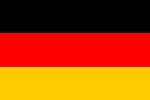Description
The Petersberg process has its origins in a 1998 joint initiative by the Federal Ministry for the Environment, the Federal Ministry for Economic Cooperation, the Federal Foreign Office and the World Bank. In April 1998, a high-level Round Table on Transboundary Water Management was held at Petersberg near Bonn. The meeting’s central message was that this cooperation could serve as a catalyst for international cooperation and peace (Petersberg Declaration). More international conferences followed, some of which had a regional focus (Nile, Baltic Sea). This series of meetings, together with the 2001 Conference on Freshwater held in Bonn, contributed considerably to the inclusion of transboundary water management among the decisions of the World Summit on Sustainable Development (Johannesburg 2002).
Germany is widely expected to continue to follow and to promote the issue in the implementation stage of the World Summit decisions. In phase II of the Petersberg process, the Federal Ministry for the Environment, in coordination with the Federal Ministry for International Cooperation and the World Bank, will focus on the concrete implementation of transboundary water management in catchment areas in Southeastern Europe. This phase is intended to merge current developments and to highlight options for future cooperation in transboundary water management (rivers, lakes and ground water) in Southeastern Europe.
Phase was II launched by a Round Table in Berlin from 5 - 7 December 2005, that brought together national representatives from the region as well as representatives of international organizations (World Bank, Global Environmental Facility, Global Water Partnership).

